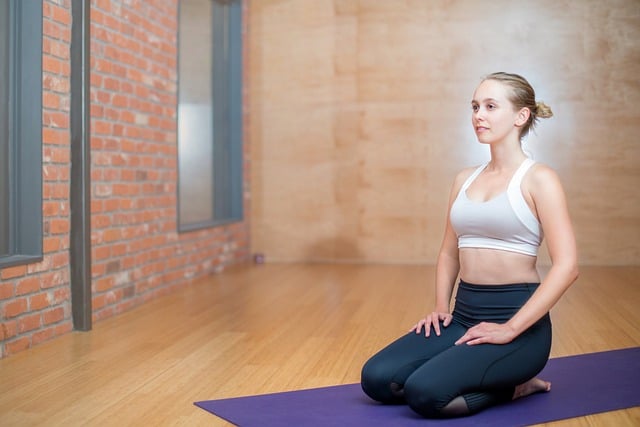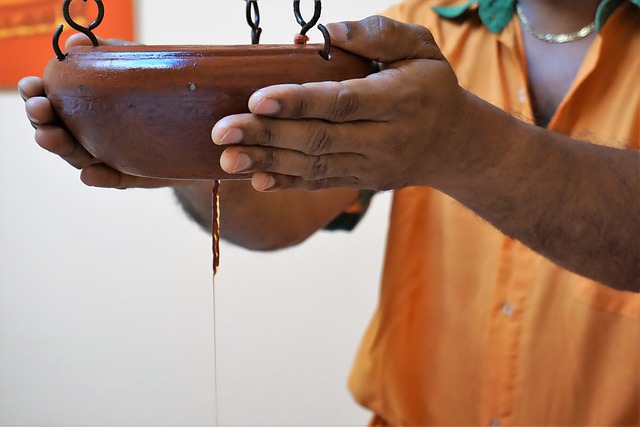-By: Bhavisha Changrani
Depression, a prevalent mental health disorder, can significantly impact daily life, relationships, and overall well-being. While seeking professional help is crucial, incorporating natural healing practices such as yoga can complement traditional treatments and promote holistic wellness. This article explores yoga poses specifically tailored to alleviate depressive symptoms and offers additional tips for naturally managing and healing depression.

Understanding Depression and Natural Healing
Depression is characterized by persistent feelings of sadness, hopelessness, and loss of interest in activities. While medication and therapy are common treatments, natural approaches can also play a significant role in managing symptoms and fostering emotional resilience. These approaches focus on addressing underlying imbalances in the body and mind while promoting self-care practices that support mental health and well-being.
Yoga Poses for Alleviating Depression
Yoga, an ancient practice originating from India, combines physical postures, breathwork, and meditation techniques to promote holistic wellness. Specific yoga poses can help alleviate depressive symptoms by reducing stress, promoting relaxation, and restoring balance to the body and mind. Here are some yoga poses beneficial for managing depression:
Sun Salutation (Surya Namaskar)
This dynamic sequence of yoga poses synchronizes movement with breath, invigorating the body and calming the mind. Sun Salutation stimulates circulation, releases tension, and uplifts mood, making it an excellent practice for alleviating depressive symptoms.
Child’s Pose (Balasana)
A restorative pose that promotes relaxation and introspection, Child’s Pose gently stretches the back, hips, and shoulders while encouraging deep breathing and a sense of surrender. This pose can help release tension and anxiety, fostering a sense of peace and calm.

Forward Fold (Uttanasana)
Forward Fold releases tension in the spine and hamstrings while promoting blood flow to the brain. This pose can help alleviate feelings of anxiety and depression by calming the nervous system and inducing a sense of grounding and relaxation.
Bridge Pose (Setu Bandhasana)
Bridge Pose strengthens the back, legs, and core muscles while opening the chest and shoulders. It stimulates the thyroid gland, which regulates metabolism and energy levels, promoting a sense of vitality and well-being.
Legs-Up-the-Wall Pose (Viparita Karani)
This gentle inversion encourages relaxation and rejuvenation by promoting circulation and lymphatic drainage. Legs-Up-the-Wall Pose can help alleviate fatigue, anxiety, and depressive symptoms by calming the nervous system and restoring balance.

Corpse Pose (Savasana)
A final relaxation pose that allows for deep rest and integration, Corpse Pose promotes surrender and acceptance. It provides an opportunity for profound relaxation, releasing tension and stress stored in the body and mind.
Incorporating Additional Natural Healing Tips
In addition to yoga, several lifestyle changes and self-care practices can support natural healing and management of depression. Here are some tips to consider:
Nourish Your Body
Adopt a balanced diet rich in whole foods, including fruits, vegetables, lean proteins, and healthy fats. Avoid processed foods, sugar, and caffeine, which can exacerbate depressive symptoms.
Stay Active
Regular physical activity, such as walking, jogging, or dancing, releases endorphins and improves mood. Aim for at least 30 minutes of exercise most days of the week to support overall well-being.
Practice Mindfulness and Meditation
Incorporate mindfulness and meditation into your daily routine to cultivate awareness, reduce stress, and promote emotional resilience. Set aside time each day for quiet reflection and deep breathing exercises.
Connect with Nature
Spend time outdoors in nature, whether it’s going for a hike, gardening, or simply sitting in a park. Connecting with nature can help reduce stress, improve mood, and foster a sense of peace and connection.
Seek Support
Seek emotional support and connection from friends, family, or support groups.. Talking about your feelings and experiences can help alleviate loneliness and provide a sense of validation and understanding.
Prioritize Sleep
Establish a regular sleep schedule and create a relaxing bedtime routine to promote restful sleep. Aim for 7-9 hours of quality sleep each night to support mood regulation and overall well-being.
Set Realistic Goals
Break tasks into manageable steps and set realistic goals for yourself. Celebrate small achievements and practice self-compassion and kindness toward yourself.
Conclusion
Managing depression requires a holistic approach that addresses the body, mind, and spirit. By incorporating yoga poses tailored to alleviate depressive symptoms and adopting natural healing tips, individuals can support their mental health and well-being in a comprehensive and empowering way. Whether it’s through yoga practice, dietary changes, or self-care rituals, embracing natural healing practices can promote resilience, self-empowerment, and a renewed sense of vitality on the journey toward healing from depression.












